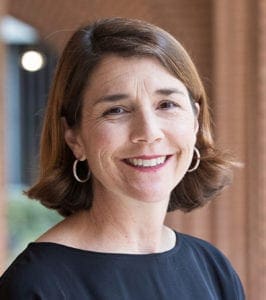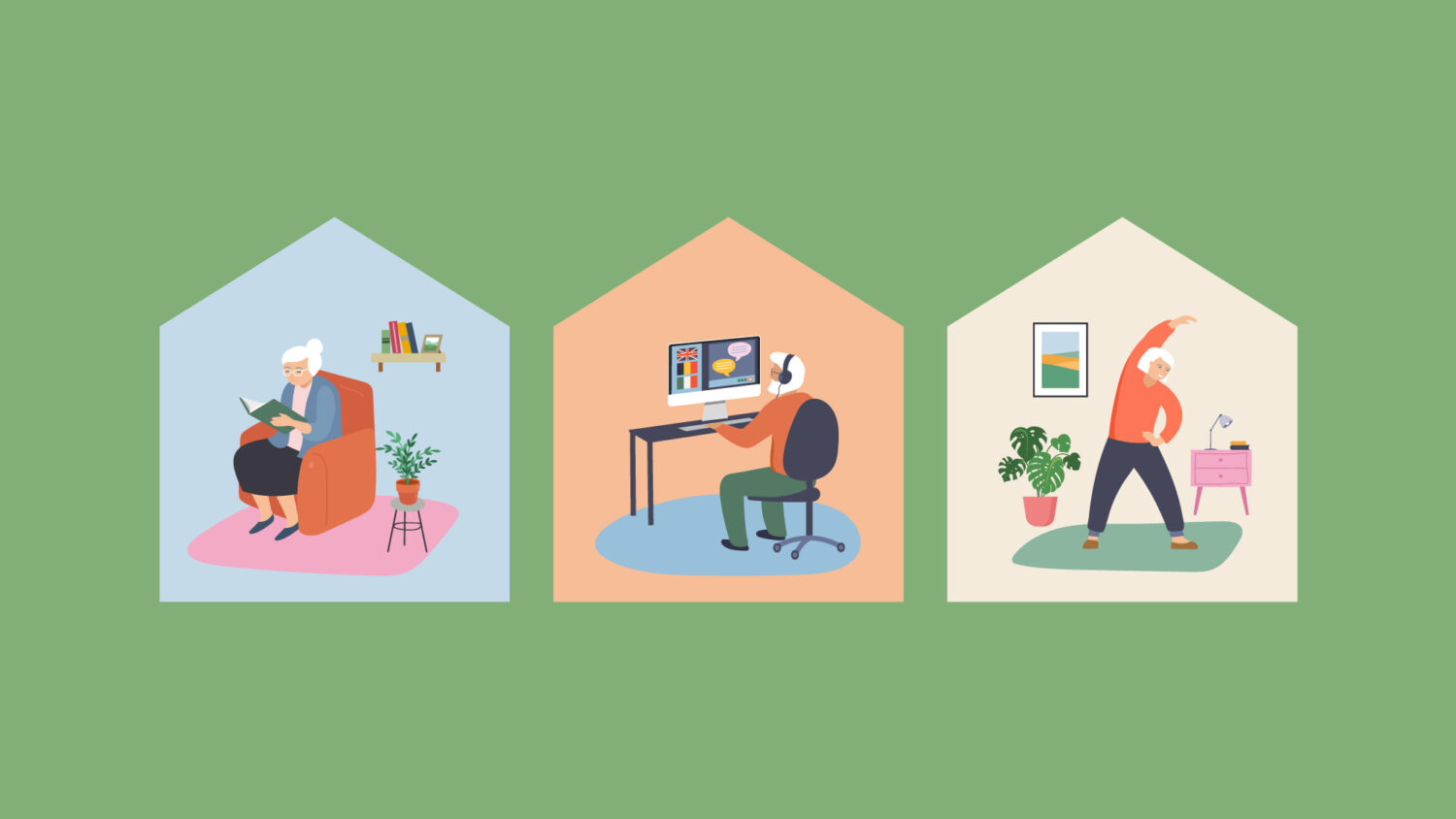
Instructional Associate Professor Caroline Cicero
Editor’s note: Caroline Cicero, PhD, MSW, MPL, is an Instructional Associate Professor at the University of Southern California Leonard Davis School of Gerontology and the director of the USC Age Friendly University Initiative. This column originally appeared in the American Society on Aging’s Generations Now on September 28, 2020.
One September night in 1989 as Hurricane Hugo was closing in on South Carolina, my college classmates and I discussed their coastal-dwelling parents’ and grandparents’ plans. Although that was more than 30 years ago, I vividly recall my friend telling me that her mother was not going to evacuate her house, just a few miles from shore.
Hailing from the Midwest, I did not understand her choice. When we had springtime tornado threats back home, we had no option of staying or fleeing—we simply went down to the basement and brought a radio. I had no lived experience of what to do before a tropical storm nor the rational understanding of the potential outcomes to follow. This decision regarding whether to evacuate was new to me.
My friend explained that her mother couldn’t leave the house behind because it “was all she had.” That late-night discussion was one of the few eye-opening conversations I remember from college. It not only informed me at the time, but informed my life and career. My first hurricane was the beginning of my exploration into a person’s micro-level attachment to home and place, yet it also put me on the path to assessing the broader, macro perspectives on surviving natural disasters and coping with societal and environmental trauma.
The Role of Environmental Stressors
In the more than 30 years since Hugo, older people’s testimonies have shaped my understanding of survival, managing memories and possessions, endurance, resilience and even thriving. Survivors of racial, religious and cultural oppression, abuse and localized violence, as well as those who have lived through wars and genocide, have taught me much about how to face my own encounters with illness, abuse, grief, displacement, accidents, injustice and disasters.
College also was when I first learned about the Holmes and Rahe Stress Scale for evaluating people’s presenting problems. It ranks personal issues that have occurred in the past year: death of a spouse or close family member, divorce and separation, imprisonment, injury and illness, etc. However, there is no mention of the major systemic pressures we face today. A worldwide pandemic, national political stress, local racial injustice and climate change are off the list.
And what about the personal yet structural stressors of having your house flooded, blown over, crushed, or burnt down, let alone anticipating, evacuating, fleeing and surviving a causative weather event? To say nothing of ending up homeless. These would likely end up pretty high on that stress scale.
While we expect the difficulties listed on Holmes and Rahe’s scale to impact us throughout our life course, today a growing number of us are experienced environmental refugees. These calamities, which damage and destroy our homes, displace us from family and threaten our lives, forcing us to revisit the levels of Maslow’s basic physiological and safety needs.
Since my first hurricane as a teenager, I have faced many stressful obstacles and disasters threatening my life, family, neighborhood and home, and readers likely have as well. In addition, we have shared the personal pain of clients’ and loved ones’ stories, been trained in evaluations, preparations, plans, intervention and management, and studied plenty of research assessing it all.
Living Through a Pandemic and Natural Disasters
While living in a pandemic today, how do we prepare for, confront, survive and cope with repeating natural disasters? How do we ask our loved ones and those with whom we work, to have emergency plans in place, to pack up a lifetime of memories in a suitcase, to move quickly when they cannot walk without assistance? Furthermore, how can we address depression and anxiety that can follow these endless taxing events? How can we respond, personally and professionally, to all the stress?
Some studies have found that older people are better than younger people at coping with everyday stressors and trauma, for they have the experience to guide them. However, these benefits may change when we add growing functional limitations, increasing cognitive deficits and decreasing social support networks that may accompany the oldest old. The research studying societal and older adult coping in this unprecedented year will come out, and there is little indication that the fires, floods and hurricanes will dissipate.
In my Southern California neighborhood, the distant scent of fire and sight of smoke stress us out. Autumn’s dry, hot winds are an ominous threat that bring anxiety, and triggers of the wildfire we experienced two years ago. Many in my community lost their homes. Mine miraculously survived, and damage has been repaired. Tragically, an octogenarian mother and her adult son died when he came to evacuate her from the fast-moving blaze. Today, many neighbors are starting to rebuild, having tangled with permitting issues for many months. Scores of older people haven’t returned at all and do not plan to come back. Many lots sit flattened, gray and vacant.
In the “off-season” my neighborhood prepares with fire prevention strategies. We all need to be sure our families and those with whom we work are prepared with emergency supplies and plans. However, environmental unrest and a pandemic no longer take a season off, nor do they obey our monthly calendar. The Western fire season quickly turns to floods after the new year. None of us can avoid stressors such as weather-related events.
Learning to Live with Situational Trauma
What can we do? Confronting weather-related trauma and loss of home, sense of place and safety, forces us to revisit which human necessities are truly necessary. Fulfilling our very basic Maslow’s needs and building our capacity to live with uncertainty and transiency are fundamental to living with situational trauma. Learning how to acknowledge and expect fires, floods, blizzards and hurricanes is going to be key to our survival. The threat of these events is now an everyday stressor for many of us.
We must prepare with supplies, options for accessible healthcare, evacuation routes and alternative shelter. We must educate local officials and communities about people’s psychological attachment to home and their possible reluctance to leave. Also, they must realistically appraise many older adults’ functional abilities, available financial and transportation resources and practical capacities to evacuate quickly in crisis.
Nudging vulnerable people to make plans and decisions that account for their limitations is critical, as is underscoring the unpredictability of weather-related events and dependence upon emergency responders. We must look out for acute triggers—sirens, smells, wind, rain, newscasts, as well as underlying untreated chronic depression and anxiety that draw less attention.
Managing our inexorable collective stress with vital daily coping strategies—creative outlets such as gardening, cooking, art and music; fostering deeper social connections; pursuing physical activities and enjoying the company of pets—is critical. As professionals, family and community members, we need to acknowledge that we are all susceptible to environmental and situational stressors and be sure to care for one another. We must build communal and interpersonal capacity, empathy, aspirations and accountable relationships across family generations and societal cohorts with the covenant that, unavoidably, we are all in this together.





